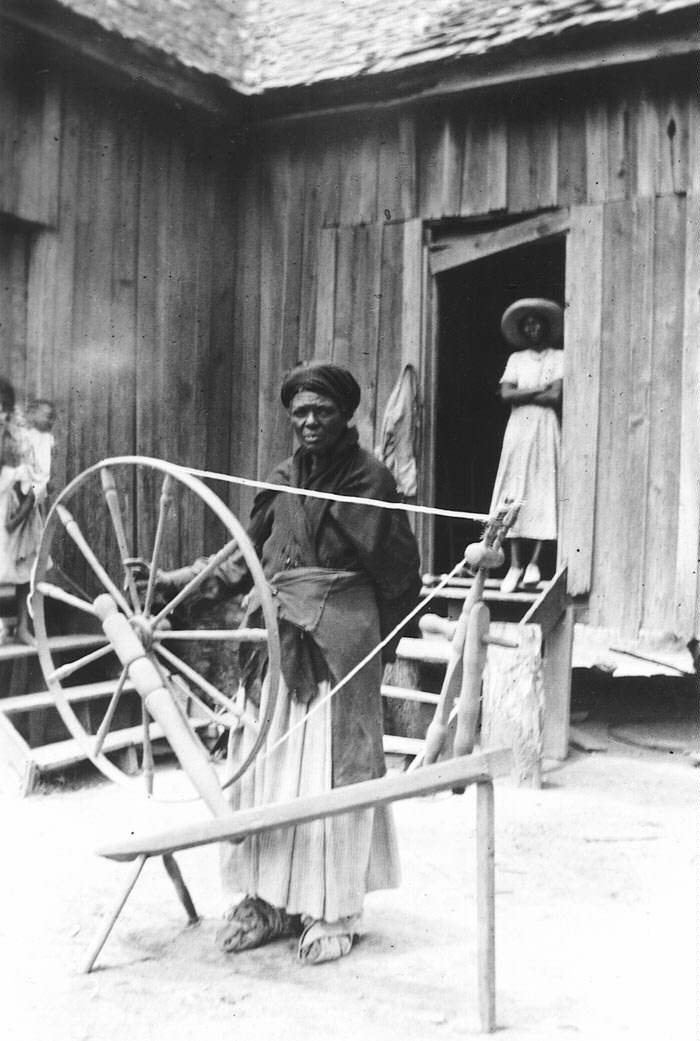
Former slave from coastal Georgia making a fishing net, early twentieth century
(Collection of the Georgia Historical Society)
My father was a carpenter and old massa let him have lumber and he made he own furniture out of dressed lumber and make a box to put clothes in. And he used to make spinning wheels and parts of looms. He was a very valuable man.-- Carey Davenport, former slave from Walker County, Texas
Slaves had many noteworthy skills and talents which made plantations economically self-sufficient. The services of slave blacksmiths, carpenters, coopers, shoemakers, tanners, spinners, weavers and other artisans were all used to keep plantations running smoothly, efficiently, and with little added expense to the owners. These same abilities were also used to improve conditions in the quarters so that slaves developed not only a spirit of self-reliance but experienced a measure of autonomy.

These skills, when added to other talents for cooking, quilting, weaving, medicine, music, song, dance, and storytelling, instilled in slaves the sense that, as a group, they were not only competent but gifted. Slaves used their talents to deflect some of the daily assaults of bondage. They saw themselves then as strong, valuable people who were unjustly held against their will rather than as the perpetually dependent children or immoral scoundrels described by so many of their owners. Indeed, they found through their artistry some moments of happiness, particularly by telling tales which portrayed work in humorous terms or when singing satirical songs which lampooned their owners.

Lucindy Jurdon reported to her interviewers: "My mammy was a fine weaver and she work for both white and colored [people]. This is her spinning wheel, and it can still be used. I use it sometimes now."

Thanks a lot for your good sharing
ReplyDeletehttp://www.livestreamsportshd.com/
Thanks for your good and reliable post
ReplyDeletehttp://gainmoneyfast.com/-94216.htm/